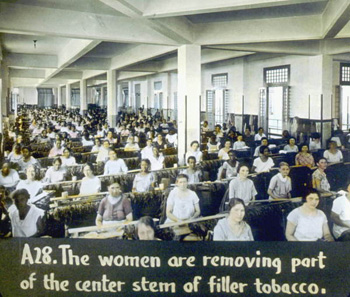The historical perspective, current state, opportunities, and challenges for women in the cigar industry
The cigar industry, long perceived as a male-dominated realm, has seen women play crucial roles throughout its history, often behind the scenes. Historically, women were primarily involved in labor-intensive tasks of tobacco cultivation and cigar rolling, their nimble fingers and attention to detail making them invaluable in production processes, particularly in countries like Cuba, the Dominican Republic, and Nicaragua. Despite these contributions, women rarely held leadership positions or received recognition for their work.
In recent decades, however, the landscape has been changing dramatically. Women have increasingly stepped into prominent roles within the cigar industry, breaking barriers and reshaping perceptions. Today, we see women as master blenders, company executives, and brand owners. Figures like Nirka Reyes of De Los Reyes Cigars, Janine Construction of Diesel Cigars, and Maya Selva of Maya Selva Cigars have made significant impacts, creating acclaimed blends and running successful businesses. Their rise to prominence has not only diversified the industry but also brought fresh perspectives and innovations.
Opportunities for women in the cigar industry have expanded significantly. There's growing recognition of women's expertise and potential in various roles, from tobacco cultivation to product development and marketing. The rise of social media and digital marketing has created new avenues for women to showcase their knowledge and passion for cigars, with many becoming influential reviewers, bloggers, and social media personalities. An emerging market of female cigar enthusiasts presents opportunities for women-owned businesses to cater to this demographic through specialized products, accessories, and experiences.
However, challenges persist in this traditionally male-dominated industry. Women often face skepticism about their knowledge and expertise, particularly in consumer-facing roles. They may need to work harder to prove their credibility and gain respect from both colleagues and customers. The industry's historically male-centric marketing, using imagery that often objectifies women rather than portraying them as consumers or experts, remains a challenge to overcome.
In some cigar-producing regions, cultural norms and societal expectations can limit women's advancement into management and ownership roles. Health concerns present another challenge, as the risks associated with tobacco use can disproportionately affect women. Balancing work and family life can be particularly challenging in roles that require extensive travel or long hours.
The modern cigar industry is witnessing a gradual shift in consumer demographics as well, with more women enjoying cigars and participating in cigar culture. This change has led to the emergence of women-focused cigar clubs, events, and marketing strategies. While challenges and stereotypes persist, the increasing visibility and success of women in all aspects of the cigar world – from tobacco fields to boardrooms – indicate a positive trend towards greater inclusivity and recognition of women's contributions to this centuries-old craft. Despite the obstacles, many women in the industry report that the cigar community can be welcoming and supportive once they establish themselves, and the increasing visibility of successful women in the field is gradually changing perceptions and creating more opportunities for others to follow.


